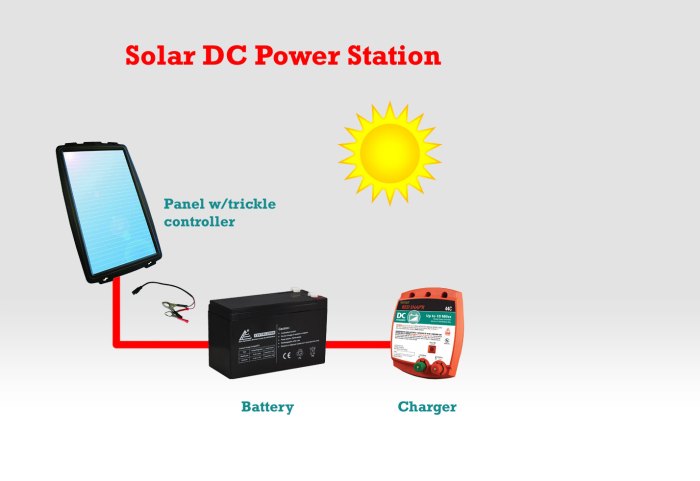
Electric car resale value is a hot topic in today’s automotive world, attracting attention from both eco-conscious consumers and savvy investors. As electric vehicles (EVs) continue to rise in popularity, understanding what affects their resale value becomes essential for anyone considering a purchase or sale. Factors such as battery life, technological advancements, and market trends can significantly impact how much an electric car is worth when it comes time to sell.
In this discussion, we’ll explore these influencing factors in detail, compare the resale values of electric vehicles to traditional gasoline cars, and delve into the specifics of insurance implications and selling strategies tailored for electric vehicles. By the end, you’ll be well-equipped to navigate the complexities of electric car resale value and make informed decisions.
Understanding Electric Car Resale Value
The resale value of electric cars is an important topic for potential buyers and sellers alike. As the market for electric vehicles (EVs) continues to grow, understanding the factors that influence their resale prices becomes essential. Various elements, from battery technology to market demand, play a significant role in determining how much an electric vehicle retains its value after purchase.Several factors influence the resale value of electric cars.
Key among these are battery life, overall technology advancements, brand reputation, and market demand. Electric cars with longer-lasting batteries and more advanced technology tend to have higher resale values. Additionally, the availability of charging stations and incentives from manufacturers can affect buyer interest, thereby impacting resale prices.
Impact of Battery Life and Technology on Resale Prices
The battery life and technology of an electric vehicle directly correlate with its resale value. As battery technology improves, older models may depreciate faster. Here are some important aspects to consider:
- Battery Degradation: Over time, an electric car’s battery capacity diminishes, which can significantly affect its resale value. A vehicle like the Tesla Model S, known for maintaining its battery well, may command a higher resale price compared to older models.
- Technological Advancements: Newer models often come equipped with upgraded features such as enhanced range, faster charging capabilities, and advanced driver-assistance systems. This can make older models less desirable, leading to a decrease in their resale value.
- Warranty Coverage: Many EV manufacturers offer extensive warranties on their batteries. A vehicle still under warranty might attract a higher resale value as it assures buyers of reduced risk related to battery replacement costs.
Comparison of Resale Values: Electric Cars vs. Traditional Gasoline Vehicles
When comparing electric vehicles to traditional gasoline vehicles, several trends emerge in resale values. Electric cars have shown a notable variation in depreciation rates compared to their gasoline counterparts.
- Depreciation Rates: Generally, electric vehicles experience a slower depreciation rate than traditional gasoline vehicles, particularly in regions where environmental concerns are prioritized. For instance, datasets indicate that some electric vehicles hold about 60% of their original value after three years, whereas gasoline cars might only retain around 50%.
- Market Demand: The increasing acceptance and popularity of electric vehicles have led to higher demand in the used car market. As more consumers look for eco-friendly options, the resale values of certain electric models rise, while gasoline vehicles may struggle to maintain interest.
- Incentives and Tax Rebates: Government incentives for electric vehicles can influence their resale value positively. When these incentives are factored in, electric vehicles can appear more attractive to buyers navigating the used market.
As the market evolves, understanding these factors is crucial for both buyers and sellers in achieving the best financial outcomes when dealing with electric vehicles.
Car Insurance for Electric Vehicles
Electric vehicles (EVs) are becoming increasingly popular, not only due to their environmental benefits but also for their advanced technologies. However, the insurance landscape for electric cars differs notably from that of conventional vehicles. Understanding these differences can help EV owners make informed decisions regarding coverage and premiums.The premiums for electric vehicles tend to be higher than those for traditional gasoline-powered cars.
This difference is primarily attributed to the higher repair costs associated with EVs, which often feature advanced technology and specialty parts. Additionally, the value of electric cars is generally higher than that of their conventional counterparts, further influencing insurance rates. Insurers take these factors into account, which can result in increased premiums for EV owners, but some companies also offer discounts for eco-friendly vehicles, making the overall costs more competitive.
Coverage Options for Electric Vehicles
When it comes to car insurance, electric vehicles have specific coverage options that cater to their unique features. Understanding these options can help you select the best policy for your needs. Here are some essential coverage types worth considering:
Liability Coverage
This is mandatory for all vehicles, including electric cars. It covers damages to others in the event of an accident.
Comprehensive Coverage
This protects against damage to your vehicle from non-collision incidents, such as theft, vandalism, or natural disasters.
Collision Coverage
This applies to damages to your own vehicle after a collision, regardless of fault.
Uninsured/Underinsured Motorist Coverage
This provides protection if you’re involved in an accident with a driver who has insufficient insurance.
Mechanical Breakdown Insurance
Considering the complex technology in electric vehicles, this coverage can be beneficial in case of technical failures.
Gap Insurance
If your electric car is totaled, this insurance can cover the difference between what you owe on your loan and the car’s current market value.Each of these options is vital for ensuring that your electric vehicle is well protected, taking into account the often higher repair costs and specialized components.
Understanding the specific coverage needs of electric vehicles helps in mitigating potential financial risks associated with their ownership.
The resale value of electric vehicles can also significantly affect insurance rates and claims. As the resale market for EVs matures, more accurate valuations emerge, often leading to more favorable underwriting practices by insurers. A higher resale value may result in increased payouts in the event of a total loss, which can, in turn, influence premium rates. Additionally, as demand for electric cars grows, their resale values may stabilize, which could lead to more competitive insurance options as companies adjust their risk assessments accordingly.
Overall, being aware of these aspects will enable EV owners to navigate the insurance landscape more effectively, ensuring adequate protection while managing costs.
Car Selling Strategies for Electric Vehicles

When it comes to selling an electric car, maximizing its resale value requires thoughtful strategies and preparation. Electric vehicles (EVs) often come with unique features and benefits that can appeal to a growing market of environmentally-conscious buyers. With the right approach, you can enhance the attractiveness of your vehicle, ensuring you get the best price possible.To successfully sell your electric vehicle, consider the following strategies that focus on effective selling methods, proper vehicle preparation, and the importance of leveraging both online platforms and traditional dealerships.
Effective Methods to Maximize Resale Value
Maximizing the resale value of your electric car involves several key strategies. These methods ensure that your vehicle stands out in a competitive market.
1. Highlight Unique Features
Electric vehicles often come with advanced technology such as regenerative braking, smart charging options, and superior safety features. Make sure to emphasize these selling points in your listing.
2. Keep Maintenance Records
A well-documented maintenance history can instill confidence in potential buyers. Ensure all service records, battery health reports, and warranty information are readily available.
3. Timing Your Sale
The demand for electric vehicles can fluctuate seasonally. Consider selling your EV at a time when demand is high, such as during government rebate periods or when new models are released.
4. Professional Detailing
Invest in a professional cleaning service to detail both the interior and exterior of your vehicle. A clean, well-maintained appearance can significantly boost buyer interest.
5. Offer a Competitive Price
Research the market value of similar electric vehicles in your area. Price your car competitively to attract serious buyers while ensuring you don’t undervalue your asset.
Checklist for Preparing an Electric Car for Sale
Creating a checklist to prepare your electric vehicle for sale can enhance its appeal and streamline the selling process. Here’s a comprehensive guide to ensure your vehicle is in prime condition.
Battery Health
Ensure the battery is in optimal condition; an inspection report can be a great selling tool.
Cosmetic Repairs
Fix any minor dents, scratches, or cosmetic issues that could detract from the car’s overall appeal.
Cleanliness
Thoroughly clean the vehicle, both inside and out, including carpets and upholstery.
Documentation
Gather all relevant documents such as the title, registration, maintenance records, and user manuals.
Charging Equipment
Include all charging cables and accessories, which can be an attractive bonus for the buyer.
Test Drive Preparation
Ensure the car is fully charged and ready for a test drive, presenting it in the best possible light.
Role of Online Platforms and Traditional Dealerships in Selling Electric Cars
When it comes to selling your electric vehicle, understanding the role of both online platforms and traditional dealerships can significantly impact your selling experience.Online platforms such as specialized EV marketplaces, social media, and general classified ad sites allow you to reach a broader audience. They enable sellers to provide detailed descriptions, high-quality images, and even virtual tours of the vehicle.
These platforms often cater specifically to buyers interested in electric vehicles, making it easier to find the right buyer.On the other hand, traditional dealerships can offer the convenience of a quick sale and potentially handle all paperwork for you. Many dealerships are now focusing on electric vehicles and may provide you with a fair trade-in value. However, the price offered may not be as high as a private sale.In conclusion, whether you choose to sell your electric vehicle online or through a dealership, understanding the strengths of each method will help you make an informed decision that maximizes your resale value.
Ending Remarks

In conclusion, understanding electric car resale value is key to maximizing your investment in an electric vehicle. By keeping an eye on technological advancements, battery performance, and market trends, you can ensure that you’re not only making a sustainable choice but also a financially sound one. Whether you’re looking to buy or sell, being informed will empower you to take full advantage of the thriving electric car market.
Query Resolution
What factors affect the resale value of electric cars?
Key factors include battery life, technology updates, market demand, and the overall condition of the vehicle.
How do electric car resale values compare to gasoline cars?
Generally, electric cars may have a lower depreciation rate due to increasing demand, but this can vary widely based on brand and model.
Do insurance premiums differ for electric vehicles?
Yes, insurance premiums for electric vehicles are often higher due to repair costs and the value of the technology involved.
What is the best way to prepare an electric car for sale?
Ensure the car is clean, maintained, has all necessary paperwork, and consider highlighting features that appeal to buyers, such as battery health and technology.
How can online platforms aid in selling an electric vehicle?
Online platforms provide greater visibility and access to a broader audience, making it easier to connect with potential buyers.






